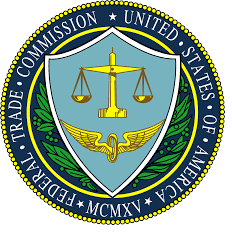By Peter Hong
While the 115th Congress remains at a standstill on overhauling Obamacare, there is a much lesser known, yet important, ongoing fight in health care: the battle pitting open competition against monopolization of the contact lens market.
For years, health care giant Johnson & Johnson had the contact lens manufacturing market cornered, due in large part to the benefits of a government-created monopoly and the substantial kickbacks it gave optometrists on sales of its Acuvue brand lenses.
Until 2004, optometrists were not obligated to give patients a copy of their prescriptions, stripping from contact lens wearers control about where to shop. As a result, consumers generally obtained their lenses directly from eye doctors at higher prices. This pattern favored large, established lens manufacturers like Johnson & Johnson and their cozy backroom deals with optometrists.
To level the playing field, Congress enacted the “Fairness to Contact Lens Consumers Act” (FCLCA), which included, among other reforms, a requirement that doctors automatically provide their patients with their prescription free of charge following a contact lens fitting. It also prevents them from delaying third-party sales for indefinite amounts of time. Because doctors could no longer steer their patients to favored lens brands, new entrants, including Walmart and online retailers, began raising the level of competition into the marketplace.
Even with the entry of new competition, Johnson & Johnson still controls a 40% share of the contact lens market. Much of this is due to the fact that the FCLCA reforms have not been fully enforced. A poll commissioned this year by Consumer Action reveals that nearly one-third (31%) of contact lens consumers still do not receive their prescription from their doctor following an exam. Not surprisingly, 72% of contact lens consumers surveyed purchase contact lenses at their eye doctors’ offices, while only 24% of surveyed consumers purchase lenses from online sites.
The Federal Trade Commission (FTC), the federal agency tasked with breaking up unfair and anti-competitive monopolies, is currently in the process of finalizing its rule for ensuring greater market competition. In addition to ensuring that prescribers provide patients with complete prescriptions, it also requires doctors to verify or provide prescription information to third-party contact lens sellers, like 1-800-CONTACTS or Lens.com.
Just this week, Senators Orrin Hatch (R-UT), Chairman of the powerful Senate Finance Committee, and Richard Blumenthal (D-CT) sent a letter to Acting FTC Chairwoman Maureen Ohlhausen asking the agency to finalize its rule. “Federal law correctly bars contact lens consumers from obtaining their lenses without a prescription,” the senators wrote. “Yet, at the same time, eye care providers that issue prescriptions can also dispense the contact lenses they prescribe, creating an inherent conflict of interest.”
The Washington professionals representing the optometrists and big manufacturers are fighting back. They persuaded Congressmen Leonard Lance (R-NJ) and Bobby Rush (D-IL) to lead the effort urging the FTC to withdraw the rule. Not surprisingly, Johnson & Johnson and another contact lens manufacturing giant, Allergan, were the second and third largest contributors to Lance’s campaign in the 2016 cycle.
The lobbies for the optometrists and contact lens power players are also pursuing legislative options to further restrict competition. Last year, they persuaded members of the House and Senate to introduce the “Contact Lens Consumer Health Protection Act” (CLCHPA). While the measure failed to pass in the 114th Congress, you can bet its proponents are hard at work to revive it this year.
The measure would have required all contact lens sellers to provide methods of communications like fax numbers and landline numbers — points of contact which many online vendors don’t have. Under the bill, doctors would have been reinstated their indefinite approval cushion for third-party orders, meaning that eye doctors could again block the sale of lenses from any disfavored vendors simply by stalling. In other words, all the progress made toward establishing free and open competition in the contact lens marketplace would be for naught.
The arguments against open competition are misleading at best. Most center around contrived notions about alleged health dangers posed by purchasing contact lenses from alternative retailers. These claims have been debunked thoroughly and repeatedly by a number of different expert sources, including the FTC, the Centers for Disease Control and Prevention (CDC), and the optometrist’s own research arm.
For instance, in its rule proposal, the FTC concluded there was no increased risk of buying contact lenses from alternative retailers, stating: “the Commission has not seen reliable empirical evidence to support a finding that such sales are contributing to an increased incidence, or increased risk, of contact lens-related eye problems.
Even the optometrists’ own research organization can’t back up its specious claims. According to a study published by the American Academy of Optometry (AAO), “the purchase location of soft contact lens wearers had limited impact on known risk factors for soft contact lens-related complications.” Notably, this study, using data from the CDC, was conducted by an optometry research organization formed by the AAO and funded by a grant from Alcon, a leading contact lens manufacturer.
Free markets only work efficiently when they are open to free and fair competition. Monopolies, particularly those created or fueled by misguided public policy, are bad news for the economy, potential new entrants, and especially consumers. When Congress returns in September, it should focus on overhauling the country’s biggest failing health care monopoly – Obamacare – and avoid interfering with the efforts of the FTC to ensure free and open competition in the contact lens market.
Peter Hong is a contributing editor at Americans for Limited Government







